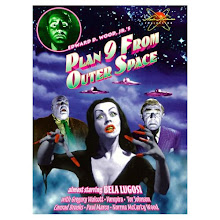Sunday, February 21, 2010
"Bus 174" comments by Andy
Here's what was so frustrating for me about the event, and why I think the movie was so brilliantly done:
Rio police are idiots. I appreciate that the gunman had a terrible life, and although I agree with Jason that the movie was heavy-handed in that regard, I thought the backstory on the gunman was needed, and actually a little lighter than it could have been. Unfortunately though, his backstory was overshadowed the incompetence of the Rio police.
Here's my point: at several times in the beginning and through the "final throes of the insurgency," several civilians were within easy striking distance of the gunman. Ipso facto, officers could have been just as close (and were at times). A sniper rifle would have been completely unnecessary to obtain a decent killshot as the sniper would have been well within 25 yards (probably 25 feet) of the gunman for the entire episode. I am baffled that as corrupt as the Rio police were that they wouldn't see this opportunity to actually kill someone lawfully and take it. It really speaks to the corruption high-up that the captain was constrained from giving the proper order. Why? It makes no sense.
And the denouement for me was that the gunman, although spared during the actual dangerous crisis, was killed after he was in police custody on the way to the jail. They failed to protect anyone, and the police, in fact, murdered the gunman. It's the oposite of a lawful society.
I feel terrible for the one victim in the crisis. I have little doubt that the shot that actually killed her was from the ridiculous police officer who somehow managed to miss at point-blank range. I'm not a police officer, but I can imagine the outrage that officers must feel when they watch this movie - I nearly share it.
All that said, it was a brilliant documentary in its ability to help me empathize with the gunman, while simultaneously being pissed-off at the police for failing to take him out in a timely fashion.
comments by Andy
Wednesday, February 17, 2010
Irony and “Bus 174”
by Jason Pyles
“Bus 174” (2002) is a Brazilian documentary about an unfortunate incident that occurred in June 2000 in Rio de Janeiro, when a gunman took hostages on a public bus.
The footage from the hostage situation — which was considerable since it became a major media event — is actual footage and not dramatic recreation. But much like “Touching the Void,” because we see talking-head, interview footage of the survivors, much of the scenario’s suspense is deflated, though I will tell you that non-graphic death occurs.
But the reason “Bus 174” is worth watching is its painful irony: My online dictionary defines “irony” as “a state of affairs or an event that seems deliberately contrary to what one expects and is often amusing as a result.” This film is sadly ironic.
First of all, the law enforcement’s response to this hostage crisis is staggeringly mismanaged, to say the least. The police and SWAT’s perpetually poor decisions fit the aforementioned definition of irony. It is truly incredulous that something so delicate and dire could be handled so badly.
The two most striking bits of irony, however, have to do with the gunman himself in relation to his story being captured in the cinematic medium that is this documentary. Several times during the incident, the gunman tells the police, “This ain’t no action movie! This is no movie!” At the time it wasn’t a movie, but in this filmic form, it actually is a movie now. Not necessarily an action movie, but a dramatic documentary. That’s ironic.
Also, at one point a lady who cares for the gunman reveals that he had some delusions of grandeur when he was going to abandon and overcome his street life and become famous worldwide. This is ironic because he didn’t abandon his street life — in fact, he embraced it — and became infamous worldwide through this film. (According to the IMDb.com, this film was released in 16 different countries.)
At times “Bus 174” becomes a little heavy-handed in its attempts to conjure our sympathy for the hijacker and other people who were orphans raised by the streets, but many documentaries carry a message. Setting the subtitles and its relevant preachiness aside, “Bus 174” is worth watching as an ironic human drama just to see how it all unravels. You won’t believe how far south this thing goes.
Monday, February 8, 2010
Regarding Adaptation.
by Jason Pyles
I don’t use the term lightly, but even when I first saw “Adaptation.” as a mere film fan (and not a film student), I thought it was a masterpiece. Now, seeing it again, I have no doubt. It is one of my all-time favorite films. “Brilliant” is a word that readily springs to mind. It just so happens that I have been studying screenwriting lately, which certainly enhanced my experience with this film during this second viewing.
First of all, I should note some things, in case any readers of our blog aren’t aware:
1.) Charlie Kaufman is an actual screenwriter; indeed, the screenwriter of this film, which is, in fact, an adaptation of Susan Orlean’s book, “The Orchid Thief.”
2.) Donald Kaufman, Charlie’s twin brother, is not a real person. And though he is fictitious, at the end of the credits, there is an “In loving memory of Donald Kaufman” dedication. Funny.
3.) Robert McKee (played here by Brian Cox) is an actual lecturer on screenwriting, and coincidentally, I’ve been studying from the same book shown in the movie. And though Kaufman seems to be paying proper respect to McKee, at the same time, the design of the film itself smacks in the face of McKee’s by-the-book instruction — like some smart-alec antics executed mockingly by a too-cute genius. Anyway, all kinds of little in-joke treasures for screenwriters.
4.) And yes, the criminal acts depicted in the film are fiction. I think it’s admirable, as Andy mentioned, that they permitted such an unorthodox adaptation of this book. But after “Being John Malkovich,” Kaufman obtained substantial trust and freedom.
Obviously, what is truly most masterful about “Adapation.” is that the film itself is an “ouroboros” (the snake that eats itself), which is also referenced directly in the film. Astoundingly, the film’s structure is designed such that the story is “written” behind its own telling. Now, this might not seem like a big deal at first. After all, how many people live through the events of life — then write them down afterward. But that’s not exactly the situation in “Adaptation.” In this film, we see and hear events that come around to be written by the film’s “internal screenwriter” (aka the character onscreen), and yet, it is all an accurate representation of the actual screenwriter himself writing this very film.
So, in short, Kaufman basically made a film about his making of this film, which is bizarre, considering that it is a chicken-or-the-egg paradox. In this snake-eating-itself circle, where did he ever jump in to begin?
If you’d really like to have your mind blown, Charlie Kaufman’s trick in “Adaptation.” is carried on to the point of perversion in his bizarre film, “Synecdoche, New York,” where the self-reflective, self-awareness of the lead character becomes nothing short of overwhelming.
Looking over Kaufman’s filmography, one can quickly see that Kaufman is, without question, one of the most innovative screenwriters in filmdom. And I will write it a third time: “Adaptation.” is a masterpiece.
Regarding Perfume: The Story of a Murderer
by Jason Pyles
The Premise:
Perhaps the most notable and unusual element of “Perfume: The Story of a Murderer” is its premise: Consider how difficult it would be to write a screenplay for the cinema — a visual medium that is supposed to “show, not tell” — about a guy who has a superhero-like sense of smell. There were several occasions, especially near the beginning, when we hear the actor sniffing loudly. But this could have easily veered off into the comical. It’s decidedly difficult to visually illustrate that a person has a talent for smelling, especially considering that the sense of smell itself is more abstract than concrete. (This movie may have worked really well in Smell-O-Vision!) Nevertheless, this film improves upon itself as it moves from the conspicuous sniffing to the depiction of Jean-Baptiste Grenouille’s visualization of what’s happening beyond the scope of his other senses, such as the way he could smell and therefore know that the perfume-school-instructor couple were having sex. (This smelling predicament reminds me a little of Charlie Kaufman’s challenge to write about flowers in “Adaptation.”)
The Actors:
I never thought I’d write something like this, but Dustin Hoffman is the low-point of “Perfume.” His character (and overall performance) is too close to the wacky role he played in “Mr. Magorium’s Wonder Emporium,” which is an altogether unpleasant affair. Technically, “Perfume” preceded that one, but having seen “Magorium” first, I guess I lose. Hoffman’s familiar face took something away from the obscure gem that is this film. Alan Rickman is another well-known actor who appears in “Perfume,” but he is invariably a compelling screen presence. And yes, I agree with Andy, that Ben Whishaw as Grenouille gave an unsettling performance. That is the kind of dark role, I would imagine, that would end up negatively affecting the actor, like Heath Ledger’s The Joker.
Bleak Book-Ends:
My favorite parts of “Perfume” are its dismal beginning and ending. Grenouille’s arrival into the world is a profoundly sad sequence. And then — spoiler alert — his resignation to allow himself to be devoured in the end was both startling and troubling.





























































